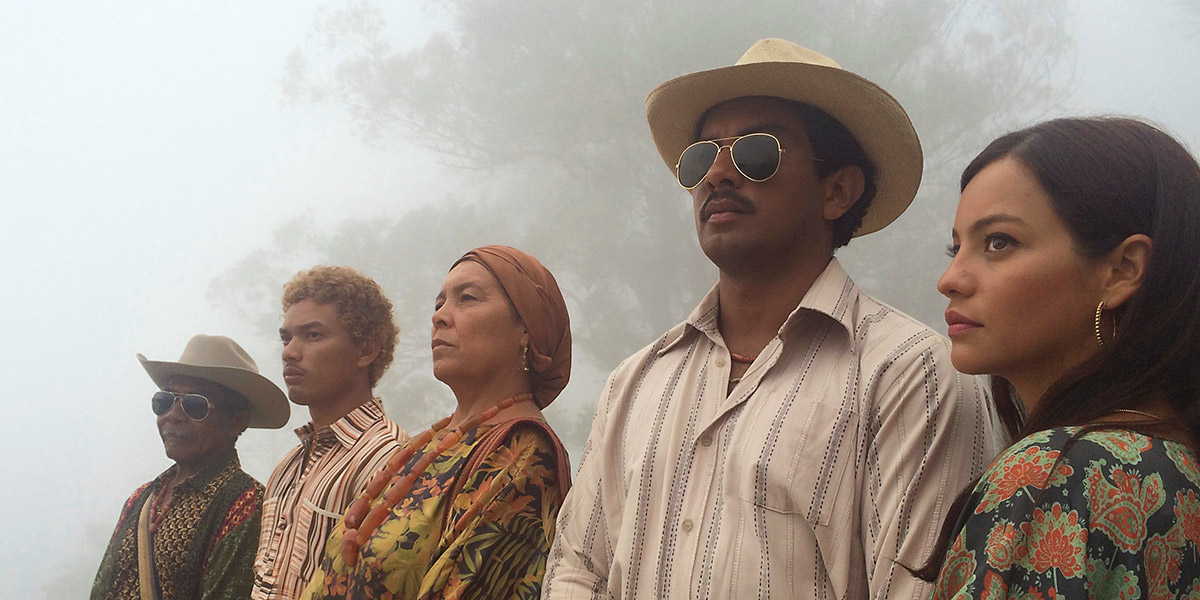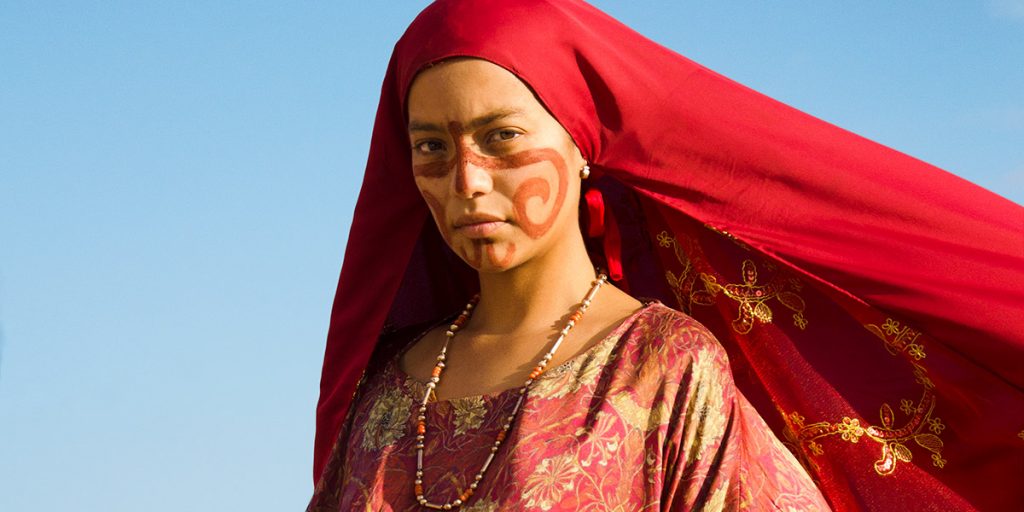At the 2018 Toronto International Film Festival, Colombian filmmaker Cristina Gallego sounded fed up. On the heels of Narcos, Escobar: Paradise Lost and now Loving Pablo, Gallego’s new Pájaros de verano (Birds of Passage) (co-directed with longtime partner Ciro Guerra, following their 2016 Oscar nominee Embrace of the Serpent) seeks to correct the narrative, focusing on the Wayúu community in the Guajira Peninsula – the biggest indigenous group in all of Colombia. The main character is a taciturn marijuana kingpin named Raphayet (José Acosta) whose business explodes between 1968 and 1980. “Tourists come to Colombia with shirts of Escobar, and it’s like an insult to us,” Gallego explained to me a few days after the film’s North American premiere. “It’s like glorifying a dictator or Hitler. We were not satisfied with the representation given to drug trafficking in Colombia.”
A movie that took almost ten years to get off the ground, Birds of Passage attempts a rickety balancing act: the movie functions equally as an elegy for Wayúu traditions (including ritual dances, burials, and codes of conduct), as rise-and-fall gangster epic, and as a critique of Yankee intervention in the Americas. “Our goal was to make a Godfather-style crime story but without dishonoring the traditions of the Wayúu,” she asserted.
Raphayet and his hard-partying partner Moises (Jhon Navaez), who is not Wayúu, begin their enterprise by selling weed to blonde and bearded Peace Corps volunteers from the States. “We Colombians are always being related back to drugs and terrorism, but the ones who started this nightmare were the gringos,” Gallego explains. “As Colombians, Ciro and I didn’t even know this history… There were smugglers in the desert in the north, sending whiskey, cigarettes, coffee, clothes, and they inevitably expanded to marijuana. But it wasn’t yet illegal. The ‘War on Drugs’ was declared in the 1970s.”

It’s not spoiling much to say that crime only pays for so long: Raphayet and his family become precipitously wealthy (complete with a cavernous gold-plated mansion out in the desert flats), but the demands of capitalism drive him apart from his cousins, who supply the herbs, and a bitter gang rivalry ensues. Every step of the process forces the tribe to deploy their codes of conduct in new territory epitomized repeatedly by Ursula (Carmiña Martínez), the mother of Raphayet’s wife, who epitomizes the Wayúu way as the waters get muddier. Gallego continues: “We created the character of Ursula because we knew the women in the Wayúu community are so strong; we wanted to depict a matriarchal society.”
Much of the film is spent watching Ursula tell Raphayet or his cousins what the code demands, even while her son Leonidis (Greyder Meza), who grows up during Raphayet’s rise, becomes a wild card and intensifies the enmity between groups. (One scene – in which Leonidis proves his manhood by paying a hanger-on to eat literal shit in exchange for bulging stacks of cash – kicked more than a few viewers into audible, obvious discomfort.) “We wanted to tell the history of a community and its total destruction,” Gallego says. “We didn’t want to glorify the drug trade, to say ‘these are the good people and these are the bad people’, because there’s nothing they could do to avoid their tragic destiny.”
As in Embrace of the Serpent, Gallego and Guerra mine drama from the collision of tradition with capitalism. The double of this collision is the uneasy tension between real and unconscious, a conflict Guerra and Gallego frame in dreamlike, hallucinatory passages whose voice-overs calls back across centuries. Mostly starring nonprofessional actors, and with at least one foot in genre cinema, Birds of Passage mines its drama from the tensions between ancient and modern – a project Gallego calls “Respecting the point of view of the other. We wanted to portray this thing in a way that we can feel good about.”
Birds of Passage opens in theaters on February 13, 2019.







